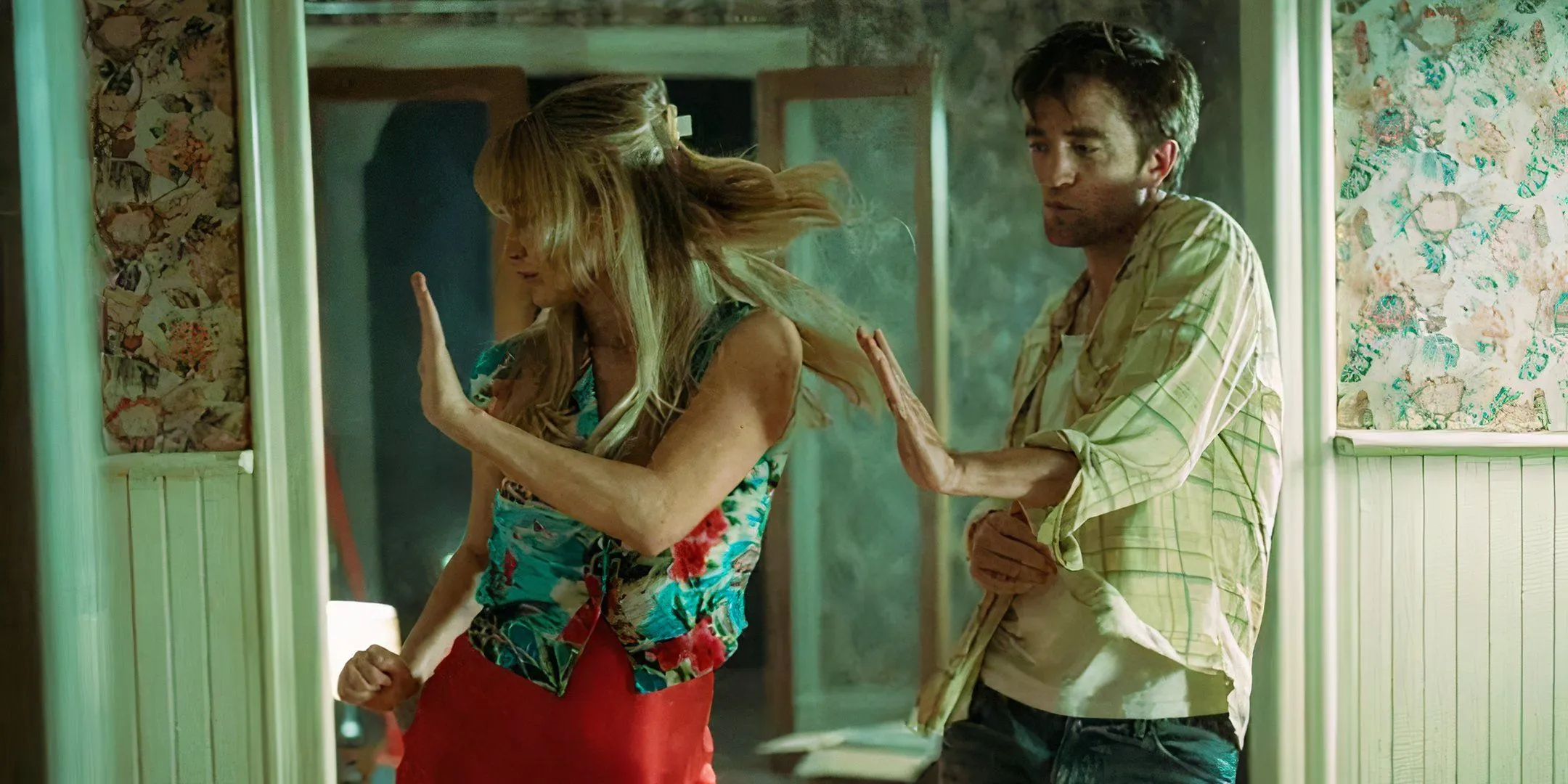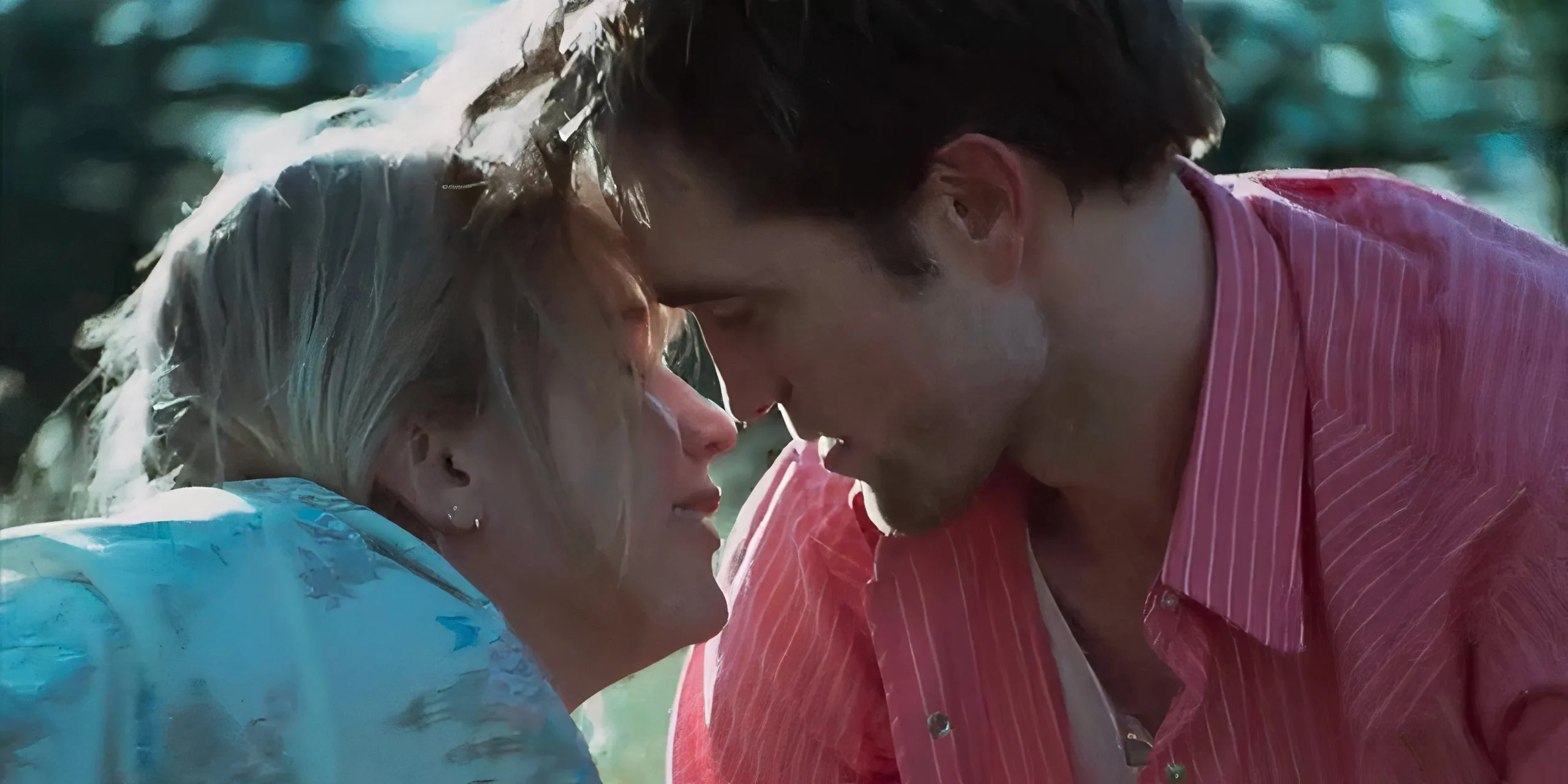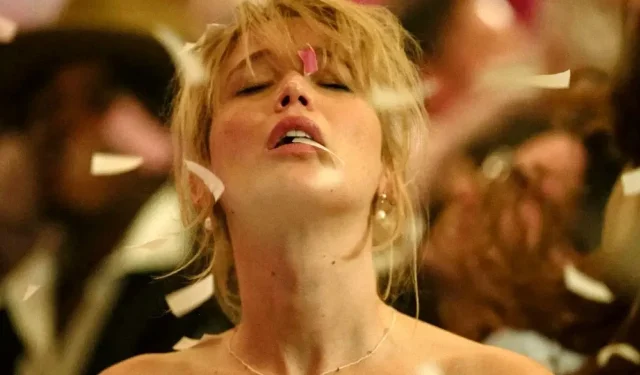In Lynne Ramsay’s latest film, Die, My Love, Jennifer Lawrence makes a powerful comeback. After taking a more discerning approach to her roles following her time in blockbuster franchises, she appeared in the understated Causeway and the polarizing Netflix release Don’t Look Up. In this poignant tale, Lawrence returns to her roots with an emotionally charged performance that showcases a mother on the precipice of madness. Combining visceral intensity with dark humor, Die, My Love delivers a startling exploration of domestic life through the unique visions of both Lawrence and Ramsay.
A Narrative of Mental Deterioration
Lawrence’s Compelling Portrayal of Grace

Lawrence takes on the role of Grace, who relocates to Montana with her boyfriend, Jackson (played by Robert Pattinson in another remarkable performance), to live closer to Jackson’s mother, Pam (Sissy Spacek, delivering a quietly impactful portrayal). Their new home is the dilapidated property of Jackson’s late uncle, who died by suicide. As struggling artists, they hope the seclusion will allow Jackson to record an album, but their aspirations are overshadowed by the realities of their lives.
Grace is a writer, but similar to Jackson, we never witness her fully engaging with her craft, especially as her dreams begin to fade following her unexpected pregnancy. The film presents their initial months in Montana through an ethereal lens, filled with warm sunlight and deep, dark nights. The couple finds solace in their love, often depicted through stripped-down moments of intimacy, dancing, and unrestrained joy despite the house’s disrepair and their isolation.
However, as the narrative unfolds, it becomes clear that Grace’s descent into darkness is intricately tied to her and Jackson’s co-dependent relationship. Their initial happiness gradually gives way to turmoil. Grace desperately strives to maintain some semblance of normalcy, from getting a cat for their infant to preparing meals for Jackson when he returns home, yet the strain begins to show.
Jackson’s withdrawal is subtle but palpable, marked by unexplained tension. His absences grow more frequent, and his increasing detachment affects Grace’s spiraling mental state. As she clings to connection, characterized by her interactions with a mysterious biker (Lakeith Stanfield) who disrupts their nights, Jackson’s emotional distance becomes painfully evident.
A Perfect Collaboration: Ramsay and Lawrence

Lawrence’s performance in Die, My Love stands as her most gripping since her role in 2017’s mother!. As the film’s heart, Grace’s experiences are depicted with a potent mix of rage and vulnerability, complemented by Lawrence’s sharp comedic timing in tension-filled moments. While the narrative may not evoke outright laughter, it introduces ironic humor that catches the viewer off guard.
Ultimately, the film merges elements of a psychological thriller with a raw depiction of domesticity. The gripping suspense arises not from plot twists but rather from the viewer’s anticipation of Grace’s next move and her reactions to escalating challenges. This makes her transformation all the more painful to observe as her community grapples with her increasingly erratic behavior, including Pam, who seeks to connect despite her own struggles.
Ramsay’s storytelling sheds light on the flaws in her characters, capturing the complexity of relationships within a rural Montana backdrop where inhabitants safeguard their innermost fears and desires. The beauty of Die, My Love lies in its unflinching exploration of love and motherhood, offering a candid perspective that often gets overlooked in conventional narratives.
Having premiered at the Cannes Film Festival, Die, My Love is set for theatrical release in North America via MUBI.


